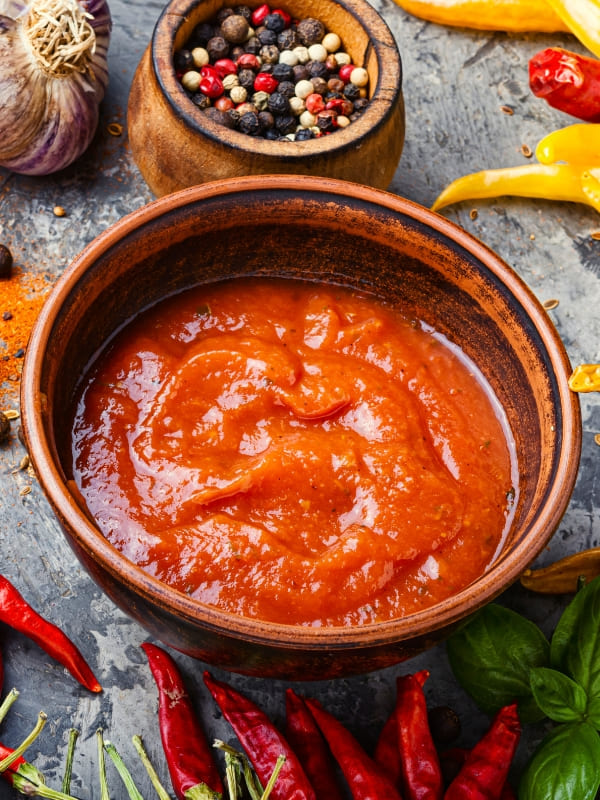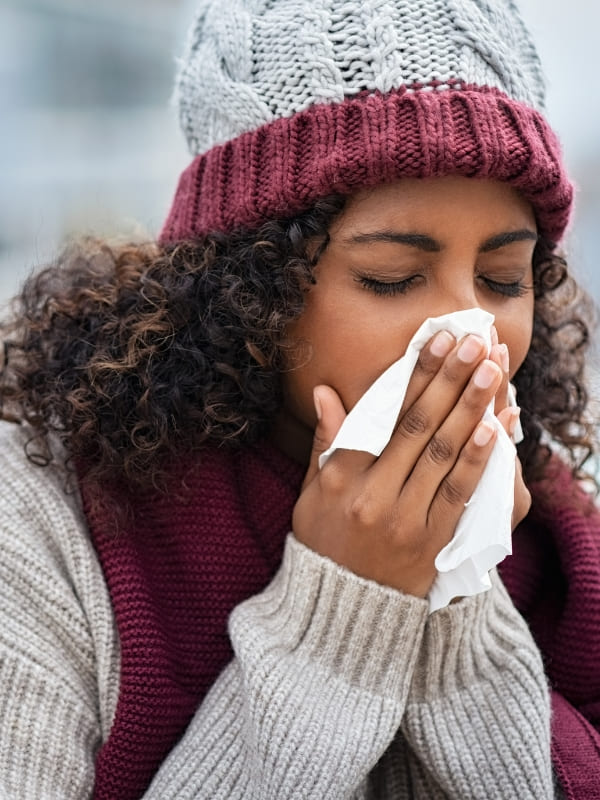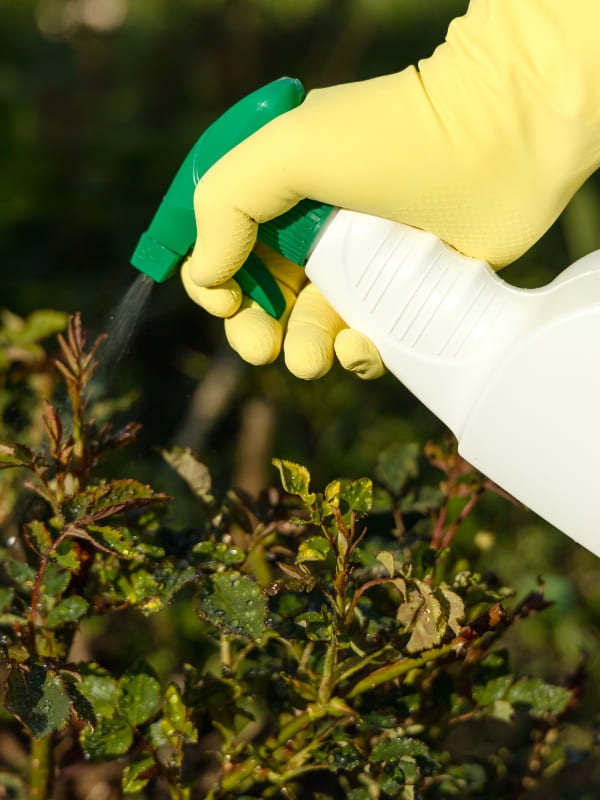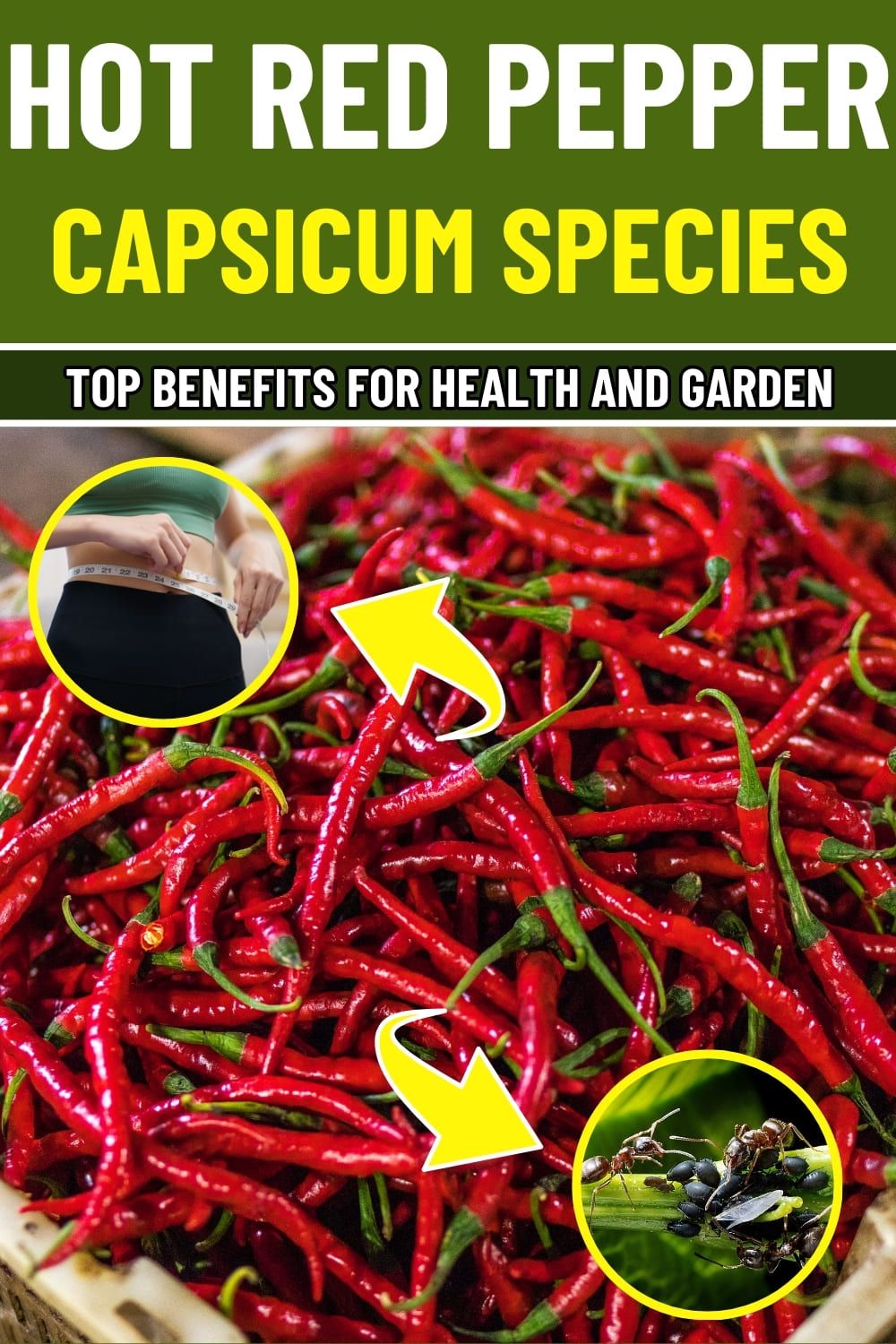Hot red pepper, derived from various Capsicum species, is celebrated not only for its fiery kick in global cuisines but also for its impressive health benefits.
Packed with capsaicin, the compound responsible for its heat, hot red pepper offers a wealth of advantages, from boosting metabolism to supporting cardiovascular health.
Whether you’re using it to enhance your meals, promote wellness, or even repel pests naturally, hot red pepper is an indispensable addition to your lifestyle.
#1. Boosts Metabolism and Aids Weight Loss
Hot red pepper is a natural metabolism booster, thanks to its capsaicin content. Capsaicin increases thermogenesis, which is the process where your body burns calories to generate heat.
A study published in Appetite (2017) found that capsaicin consumption significantly increased energy expenditure and fat oxidation, supporting weight management.
Additionally, 100 grams of hot red pepper contains only about 40 calories and negligible fat, making it an excellent choice for calorie-conscious diets.

#2. Supports Cardiovascular Health
Hot red pepper plays a role in improving heart health by promoting blood circulation, reducing LDL cholesterol levels, and preventing the formation of blood clots.
Capsaicin has been shown to reduce arterial plaque buildup, thereby lowering the risk of cardiovascular diseases.
Moreover, with around 340 mg of potassium per 100 grams, hot red pepper helps regulate blood pressure, further benefiting heart health.

#3. Strengthens Immunity
Hot red pepper is a powerful immune booster due to its rich content of vitamin C and beta-carotene. Just 100 grams of fresh hot red pepper provides about 144 mg of vitamin C, nearly double the daily recommended intake.
This supports the production of white blood cells, which defend the body against infections, and strengthens the immune system, making it resilient against colds and flu.

#4. Acts as a Natural Pain Reliever
Capsaicin in hot red pepper can alleviate pain by desensitizing nerve endings and blocking pain signals to the brain. This is particularly effective for conditions like arthritis, neuropathy, and muscle soreness.
Research published in The Journal of Pain (2016) highlights its efficacy in reducing chronic pain. Capsaicin-infused creams or balms are widely available for topical use to relieve joint discomfort.
#5. Improves Digestive Health
Hot red pepper supports digestion by stimulating the production of digestive enzymes, which aid in breaking down food more effectively.
Its fiber content helps prevent constipation, while its antimicrobial properties protect the gut from harmful bacteria.
Consuming moderate amounts of hot red pepper can also alleviate bloating and promote a healthy gut environment.

#6. Promotes Respiratory Health
Hot red pepper acts as a natural decongestant, clearing mucus and relieving sinus congestion. Capsaicin stimulates secretions, helping clear nasal passages and airways.
This makes it particularly effective during cold and allergy seasons for reducing respiratory discomfort and enhancing breathing.
#7. Reduces Inflammation
Capsaicin and other bioactive compounds in hot red pepper exhibit strong anti-inflammatory properties, which help reduce swelling and pain in conditions like arthritis or inflammatory bowel disease (IBD).
Its polyphenols and flavonoids further contribute to reducing oxidative stress, benefiting overall inflammatory responses in the body.
#8. Repel Aphids and Snails
The capsaicin in hot red pepper irritates aphids, deterring them from feeding on your plants. This natural irritant disrupts their activity without harming the plants or the environment.
Snails avoid crossing areas treated with hot red pepper due to its spicy compounds, which can cause discomfort upon contact. Unlike salt, which can harm the soil and plants, hot red pepper provides a safe and sustainable solution.

Practical Uses of Hot Red Pepper
1. Culinary Marvel
Hot red pepper is a versatile ingredient in countless dishes. Use it fresh, dried, or powdered to add heat to soups, sauces, marinades, and stir-fries.
It’s a staple in cuisines like Mexican, Thai, and Indian for its ability to elevate flavors.
2. Natural Pest Control
Repel Aphids
Hot red pepper is an effective, natural remedy against aphids. Mix 1 tablespoon of hot red pepper powder with 200 grams of crushed garlic (optional) in warm water, letting it steep for 5–6 hours.
You should strain the liquid to remove solids, then dilute one cup (240 ml) of the mixture in 10 liters of water. Pour into a spray bottle and apply directly to plants, focusing on the underside of leaves where aphids hide.
Reapply every 2–3 days or after rain. Test on a small plant section first and avoid spraying in direct sunlight to prevent leaf damage.
Repel Snails
To deter snails, mix 1 tablespoon each of hot red pepper powder and ground black pepper with 1 kilogram of diatomaceous earth. Sprinkle the mixture around plant bases or garden perimeters to create a barrier.
Reapply every three weeks or after rain. The diatomaceous earth enhances the mixture by dehydrating snails upon contact, making this an eco-friendly, effective solution.

3. DIY Pain-Relief Balm
Infuse hot red pepper in olive oil to create a natural balm for joint and muscle pain.
Apply the infused oil to affected areas to benefit from its anti-inflammatory and pain-relieving properties.
4. Detoxifying Tonic
Combine hot red pepper with warm water, lemon juice, and honey to prepare a detoxifying drink.
This tonic helps cleanse the digestive system, boosts metabolism, and provides an energy boost to start the day.
Cautions and Precautions
Hot red pepper contains capsaicin, which can cause irritation if it comes into contact with sensitive areas like the skin or eyes. Always use gloves when handling large quantities, and avoid touching your face.
Excessive consumption of hot red pepper can lead to heartburn or gastric discomfort, especially for individuals with sensitive stomachs or acid reflux. Moderation is key to preventing these issues.
Capsaicin may interact with certain medications, such as blood thinners or drugs for hypertension.
Although rare, some people may be allergic to capsaicin. Always test a small amount first to ensure no adverse reactions before consuming or applying it in larger quantities.
Disclaimer
This article is for informational purposes only and should not replace professional medical advice.
Always consult a healthcare provider before using hot red pepper for medicinal purposes, particularly if you have pre-existing conditions, are pregnant, or are breastfeeding.

Unlock the Surprising Benefits of Hot Red Pepper: Health, Flavor, and More
